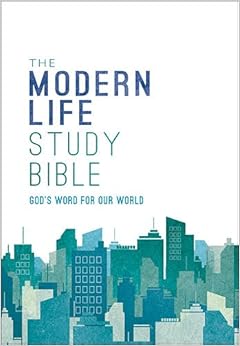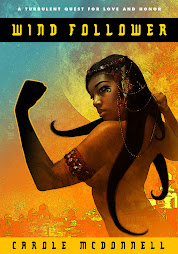Scenes and Monologues of Spiritual Experience From the Best Contemporary Plays
edited by Roger Ellis
Applause Acting Series
ISBN 9781-4803-3156-3
US $19.99
Excerpting is a difficult vocation. Not only must the excerpter know the many writings of his subject(s) but he must be vigilant against any kind of personal bias which might make him pick and choose in a dishonest, non-representative or inappropriate way. Excerpting such topics as religion or politics can make the job even more difficult.
In Scenes and Monologues of Spiritual Experience From the Best Contemporary Plays, a book that is edited by Roger Ellis and which is part of the Applause Acting Series, the difficulty of excerpting shows up quite clearly. Even if one does not challenge the phrase “Best Contemporary Plays” one is still left with the sad fact that the editor has repeatedly chosen works by the same author. It is not as if an excerpter is not allowed to direct the gaze of the reader or influence the reader, but the repeated use of the same playwrights gives the appearance of being in the hands of one who is almost doctrinal — this, although the playwrights have differing faiths. Unless a dearth of spiritual scenes in the best contemporary plays exists, the collection seems iffy..almost as if the editor is touting the works of his friends, colleagues, and teachers. A reader finds herself wondering how representative of the best the collection really is. When Ellis writes, “Bear in Mind that I’m attempting …to highlight and promote the work of a handful of uniquely talented and highly motivated artists,” the reader can only role her eyes at what appears to be a clear “disclaimer.” While a few stalwarts such as Arthur Miller are included, the contemporary excerpts all seem to be works by writers who are spiritually wet-behind the ears
All that said, the collection is an excellent one, consisting of works which show playwrights from Judaism, Christianity, Islam, Hinduism. The writers bias is shown early in the introduction when he describes the contemporary age as a “secular age.” Although the collection deftly shows traditional religion, culture intermixed with religion, and modern challenges, the phrase itself shows how mired the excerpter is. For those who are not in the western white male middle-class culture, this might not be a secular age. The introduction is written for and by one who believes that those in traditional religion are at war — literal and symbolic— over doctrinal and religious issues. In many areas Ellis writes seemingly from ignorance. For instance, at one point he writes: “It may surprise some readers to consider that so many contemporary plays deal with aspects of faith.” Or he pats himself on the back by saying “It is noteworthy that before now, no anthology has gathered this kind of dramatic material into a single collection.”
The inane and profoundly smug idea that those in this age are more enlightened or less bounded in their spiritual perspectives than those in previous ages is evident throughout and shows that Roger Ellis may be knowledgeable about plays but he is not so knowledgeable about the history of religion.
The book contains an introduction (which reads like a manifesto of current spirituality, an apology for choosing his friends — and their contact info in case the reader wishes to hire them—, and a snide pot-shot at believers in traditional spirituality) and then is divided into Scenes for a man and a woman, scenes for two women, scenes for two men, monologues for women, and monologues for men. The scenes display a range of emotions for all actors involved and the monologues have movement and depth to them.
The plays achieve their purpose, and —while they might achieve their purpose standing alone — by the end of the book, the reader who affirms traditional religion will feel slightly bombarded with propaganda and the reader who honors a more “contemporary,” secular (so-called) spirituality will feel closer to something numinous and divine. This book is recommended for all readers: the non-traditionalists who will delight to have a book which show what they will consider their innovative spirituality, and the traditionalists who (contrary to what Mr Ellis might think) have wisdom, spirituality, and a deep core of spiritual knowledge to contain all that Mr Ellis seems to consider so terribly new and hip. .
--
edited by Roger Ellis
Applause Acting Series
ISBN 9781-4803-3156-3
US $19.99
Excerpting is a difficult vocation. Not only must the excerpter know the many writings of his subject(s) but he must be vigilant against any kind of personal bias which might make him pick and choose in a dishonest, non-representative or inappropriate way. Excerpting such topics as religion or politics can make the job even more difficult.
In Scenes and Monologues of Spiritual Experience From the Best Contemporary Plays, a book that is edited by Roger Ellis and which is part of the Applause Acting Series, the difficulty of excerpting shows up quite clearly. Even if one does not challenge the phrase “Best Contemporary Plays” one is still left with the sad fact that the editor has repeatedly chosen works by the same author. It is not as if an excerpter is not allowed to direct the gaze of the reader or influence the reader, but the repeated use of the same playwrights gives the appearance of being in the hands of one who is almost doctrinal — this, although the playwrights have differing faiths. Unless a dearth of spiritual scenes in the best contemporary plays exists, the collection seems iffy..almost as if the editor is touting the works of his friends, colleagues, and teachers. A reader finds herself wondering how representative of the best the collection really is. When Ellis writes, “Bear in Mind that I’m attempting …to highlight and promote the work of a handful of uniquely talented and highly motivated artists,” the reader can only role her eyes at what appears to be a clear “disclaimer.” While a few stalwarts such as Arthur Miller are included, the contemporary excerpts all seem to be works by writers who are spiritually wet-behind the ears
All that said, the collection is an excellent one, consisting of works which show playwrights from Judaism, Christianity, Islam, Hinduism. The writers bias is shown early in the introduction when he describes the contemporary age as a “secular age.” Although the collection deftly shows traditional religion, culture intermixed with religion, and modern challenges, the phrase itself shows how mired the excerpter is. For those who are not in the western white male middle-class culture, this might not be a secular age. The introduction is written for and by one who believes that those in traditional religion are at war — literal and symbolic— over doctrinal and religious issues. In many areas Ellis writes seemingly from ignorance. For instance, at one point he writes: “It may surprise some readers to consider that so many contemporary plays deal with aspects of faith.” Or he pats himself on the back by saying “It is noteworthy that before now, no anthology has gathered this kind of dramatic material into a single collection.”
The inane and profoundly smug idea that those in this age are more enlightened or less bounded in their spiritual perspectives than those in previous ages is evident throughout and shows that Roger Ellis may be knowledgeable about plays but he is not so knowledgeable about the history of religion.
The book contains an introduction (which reads like a manifesto of current spirituality, an apology for choosing his friends — and their contact info in case the reader wishes to hire them—, and a snide pot-shot at believers in traditional spirituality) and then is divided into Scenes for a man and a woman, scenes for two women, scenes for two men, monologues for women, and monologues for men. The scenes display a range of emotions for all actors involved and the monologues have movement and depth to them.
The plays achieve their purpose, and —while they might achieve their purpose standing alone — by the end of the book, the reader who affirms traditional religion will feel slightly bombarded with propaganda and the reader who honors a more “contemporary,” secular (so-called) spirituality will feel closer to something numinous and divine. This book is recommended for all readers: the non-traditionalists who will delight to have a book which show what they will consider their innovative spirituality, and the traditionalists who (contrary to what Mr Ellis might think) have wisdom, spirituality, and a deep core of spiritual knowledge to contain all that Mr Ellis seems to consider so terribly new and hip. .
--















